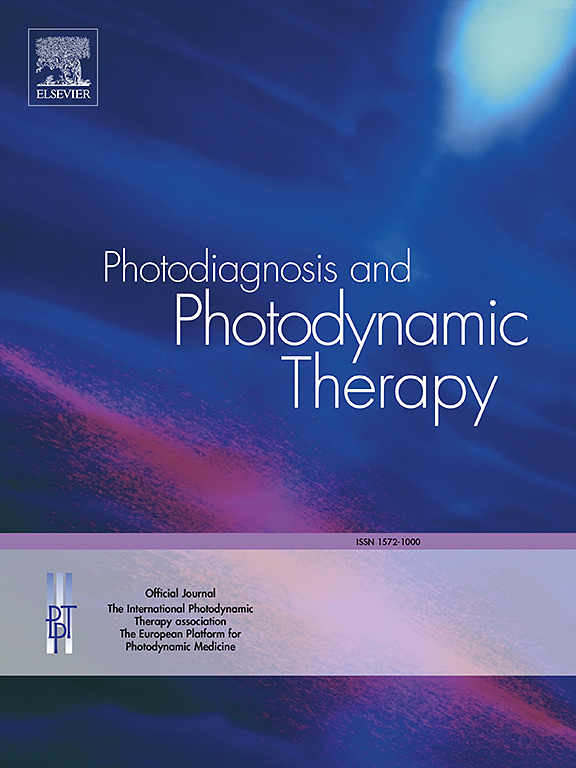眼部高血压与健康人角膜中央厚度的对比分析
IF 3.1
3区 医学
Q2 ONCOLOGY
引用次数: 0
摘要
研究目的本研究旨在比较眼压过高(OHT)患者和健康人的角膜中央厚度(CCT),并探讨CCT与眼压(IOP)、屈光度和角膜内皮细胞计数(CECC)之间的关系:方法:使用非接触式镜面显微镜测量 30 名健康受试者和 38 名 OHT 患者的 CCT。还对所有参与者的眼压、屈光度和 CECC 进行了评估。对两组患者的 CCT 进行了比较分析,并对 CCT 和各项参数进行了相关分析:所有参与者的平均 CCT 为 527.57 ± 35.84 µm。健康受试者的平均 CCT 为 516.07 ± 34.76 µm,眼压过高患者的平均 CCT 为 536.66 ± 34.46 µm,两组之间差异显著(P ≤ 0.05)。CCT与年龄(Pearson r = -0.098,P = 0.426)、屈光度(球面等效屈光度)(Pearson r = -0.158,P = 0.197)或角膜内皮细胞计数(Pearson r = 0.065,P = 0.598)无关。然而,眼压与中央角膜厚度之间存在正相关(Pearson r = 0.278,P = 0.022):结论:与健康受试者相比,中国汉族人群中的眼压病患者表现出更高的 CCT。CCT与年龄、屈光度和角膜内皮细胞数量没有关联,但观察到眼压与CCT呈正相关。以 CCT 为横轴,眼压为纵轴,线性回归方程为 Y=0.05+0.021X (F = 5.508, P = 0.022)。使用非接触式眼压计测量 CCT 可能会影响诊断和治疗青光眼和眼压过高的准确性。本文章由计算机程序翻译,如有差异,请以英文原文为准。
Comparative analysis of central corneal thickness in ocular hypertension and healthy individuals
Objective
This study aimed to compare the central corneal thickness (CCT) between patients with ocular hypertension (OHT) and healthy individuals, and to investigate the relationship between CCT and intraocular pressure (IOP), diopter, and corneal endothelium cell count (CECC).
Methods
The CCT of 30 healthy subjects and 38 patients with OHT was measured using a non-contact specular microscope. IOP, diopter, and CECC were also assessed for all participants. Comparative analysis of CCT between the two groups was performed, along with correlation analysis between CCT and each parameter.
Results
The average CCT for all participants was 527.57 ± 35.84 µm. The average CCT was 516.07 ± 34.76 µm for healthy subjects and 536.66 ± 34.46 µm for patients with ocular hypertension, showing a significant difference between the two groups (P ≤ 0.05). CCT was not correlated with age (Pearson r = -0.098, P = 0.426), diopter (spherical equivalent refraction) (Pearson r = -0.158, P = 0.197), or corneal endothelium cell count (Pearson r = 0.065, P = 0.598). However, a positive correlation was found between ocular hypertension and central corneal thickness (Pearson r = 0.278, P = 0.022).
Conclusion
Patients with ocular hypertension of members of the Chinese Han population exhibited greater CCT compared to healthy subjects in this study. CCT showed no association with age, diopter, or corneal endothelium cell count; however, a positive correlation was observed between intraocular pressure and CCT. With CCT as the abscissa and IOP as the ordinate, the linear regression equation is Y = 0.05+0.021X (F = 5.508, P = 0.022). The use of non-contact tonometers for measuring CCT may impact the accuracy of diagnosing and treating glaucoma and ocular hypertension.
求助全文
通过发布文献求助,成功后即可免费获取论文全文。
去求助
来源期刊

Photodiagnosis and Photodynamic Therapy
ONCOLOGY-
CiteScore
5.80
自引率
24.20%
发文量
509
审稿时长
50 days
期刊介绍:
Photodiagnosis and Photodynamic Therapy is an international journal for the dissemination of scientific knowledge and clinical developments of Photodiagnosis and Photodynamic Therapy in all medical specialties. The journal publishes original articles, review articles, case presentations, "how-to-do-it" articles, Letters to the Editor, short communications and relevant images with short descriptions. All submitted material is subject to a strict peer-review process.
 求助内容:
求助内容: 应助结果提醒方式:
应助结果提醒方式:


